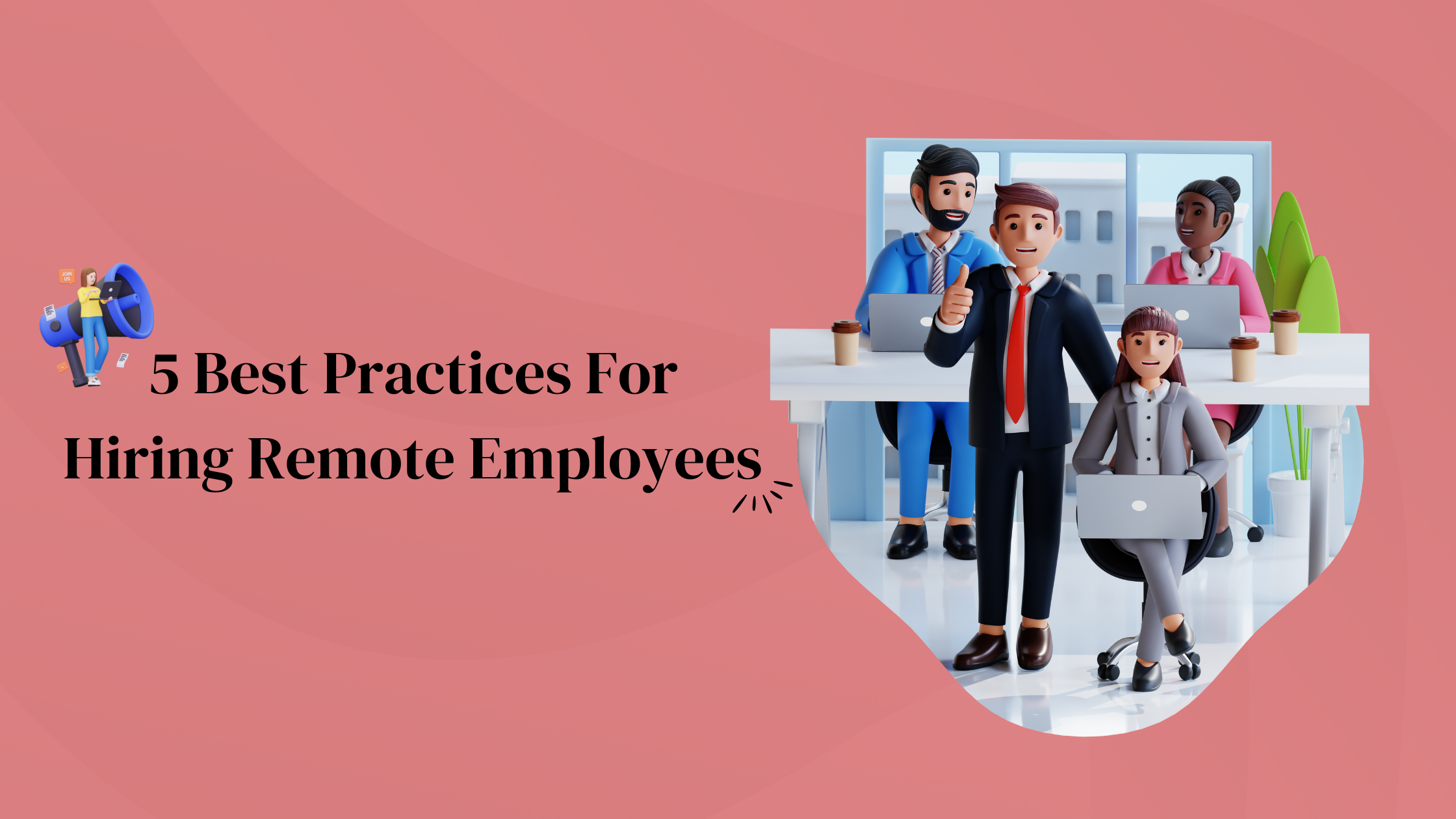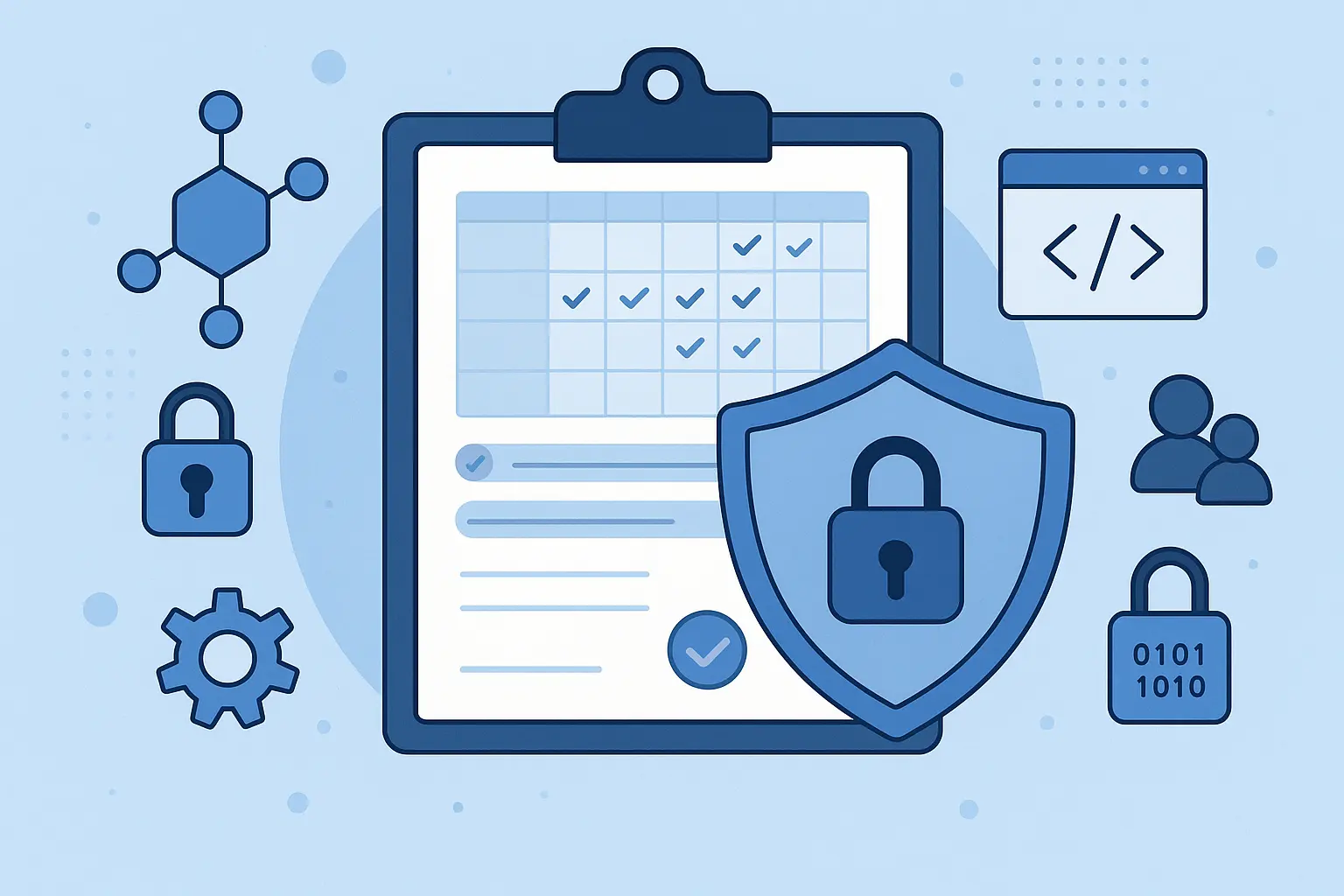The landscape of work has drastically evolved in recent years, with remote work becoming more prevalent across industries. As businesses adapt to this new normal, hiring remote employees presents both opportunities and challenges. The ability to attract talent from a global pool, increased flexibility, and cost savings are significant benefits, but they come with the need for new strategies in the hiring process. Here are five best practices for hiring remote employees that can help you build a productive, cohesive, and engaged remote workforce.
Overview Of Hiring Remote Employees
Hiring remote employees involves recruiting individuals who will work from locations outside the traditional office environment, often from home or co-working spaces.This practice has gained popularity as it expands the global talent, offering flexibility, productivity and potentially reducing operational costs..
Remote hiring requires adapting recruitment strategies to assess candidates’ skills, self-discipline, and ability to work independently. It also necessitates the use of digital tools for communication, collaboration, and performance management.
Advantages Of Hiring Remote Employees
Hiring remote employees offers numerous advantages that can significantly benefit organisations. Here are key points highlighting the importance of remote hiring:
- Access to a Global Talent Pool: Remote hiring allows companies to recruit from anywhere in the world, ensuring access to the best talent without geographical limitations.
- Cost Savings: Companies save on overhead costs such as office space, utilities, and other facilities, leading to substantial financial savings.
- Increased Productivity: Studies have shown that remote employees often exhibit higher productivity levels due to fewer distractions and a more flexible work environment.
- Enhanced Employee Satisfaction and Retention: Offering remote work options improves work-life balance, leading to higher job satisfaction and lower turnover rates.
- Environmental Benefits: Reducing the need for commuting decreases carbon footprints and supports corporate sustainability goals.
- Business Continuity: Remote work ensures business operations can continue uninterrupted during emergencies, such as natural disasters or pandemics.
- Diverse Perspectives: Hiring remotely promotes diversity and inclusion by bringing in varied perspectives from different cultural and geographic backgrounds.
- Scalability: Companies can quickly scale their workforce up or down based on project needs without the constraints of physical office space.
Challenges Of Hiring Remote Employees
Hiring remote employees comes with its own set of challenges that companies need to address to ensure successful remote working arrangements. Here are some of the key challenges:
- Communication Barriers: Remote employees may face difficulties in communication due to different time zones, lack of face-to-face interaction, and reliance on digital tools.
- Collaboration Issues: Coordinating projects and teamwork can be challenging without the ability to collaborate in person, potentially leading to misunderstandings or delays.
- Technological Dependence: Remote work requires reliable technology and internet access, and any technical issues can disrupt productivity.
- Monitoring and Accountability: Ensuring that remote employees stay productive and meet deadlines can be difficult without direct supervision.
- Building Company Culture: Creating a cohesive company culture and fostering team spirit can be harder when employees are dispersed.
- Security Concerns: Managing data security and protecting sensitive information is more complex with remote workers accessing company systems from various locations.
- Onboarding and Training: Providing effective onboarding and continuous training for remote employees can be less effective compared to in-person sessions.
Overall, hiring remote employees is a strategic move that enhances organisational flexibility, resilience, and competitive advantage.
5 Best Practices For Hiring Remote Employees
To successfully build a remote team, it’s essential to follow best practices. Here are five key strategies for hiring remote employees.
1. Craft Clear and Detailed Job Descriptions
One of the most critical steps in hiring remote employees is creating clear and detailed job descriptions. Since remote work lacks the face-to-face interaction that often helps clarify roles and expectations, it’s essential to be as specific as possible.
Key Elements of a Remote Job Description:
- Role and Responsibilities: Clearly outline what the role entails and what the daily responsibilities will be. Include specific tasks, projects, and goals the candidate will be expected to handle.
- Skills and Qualifications: List the skills and qualifications necessary for the job, including any technical requirements or experience with specific tools and software.
- Resume Guidelines and Parsing: Offer guidance on how candidates should tailor their resumes for the position. Mention the use of a resume parser to analyse the structure and content of resumes. Inform candidates that their resumes will be automatically extracted and organised, ensuring a quick and efficient review by hiring managers.
- Work Environment Requirements: Specify any equipment or software the employee will need to work remotely, such as a reliable internet connection, a quiet workspace, and familiarity with communication tools like Zoom, Slack, or Microsoft Teams.
- Company Culture and Values: Provide insight into your company culture and values. Remote candidates need to understand your organisation’s ethos and how they fit into it.
- Performance Metrics: Define how performance will be measured. This could include key performance indicators (KPIs), project deadlines, and expected outcomes.
By providing a comprehensive job description, you attract candidates who are well-suited for the role and aware of what remote work in your company entails.
2. Leverage Technology for the Hiring Process
Embracing technology is vital when hiring remote employees. From initial screening to final interviews, the right tools can streamline the process and ensure you find the best candidates.
Effective Tools for Remote Hiring:
- Applicant Tracking Systems (ATS): Use an ATS to manage applications, track candidates through the hiring pipeline, and streamline communication.
- Video Interview Platforms: Conduct interviews using platforms like Zoom, Skype, or Google Meet. These tools allow you to assess candidates’ communication skills and professionalism in a remote setting.
- Skill Assessment Tools: Utilise online assessment tools to evaluate candidates’ skills relevant to the role. These can include coding tests, writing samples, or project management scenarios.
- Collaboration Tools: Incorporate tools like Slack or Microsoft Teams for any collaborative exercises during the interview process. This not only assesses candidates’ skills but also their ability to work in a remote team environment.
Scheduling interviews and managing appointments can be a time-consuming task, especially when hiring remote employees across different time zones. Bookafy is an invaluable tool for scheduling appointments during the remote hiring process. It automated interview scheduling, manages different time zones, integrates with popular calendars, and sends reminders. This streamlines the process, saving time and ensuring a smooth experience for both candidates and hiring managers.
By leveraging these tools and technologies, you can create a more efficient, organised, and transparent hiring process.
3. Focus on Communication Skills
Effective communication is the cornerstone of successful remote work. When hiring remote employees, prioritise candidates with strong communication skills, as they are essential for maintaining productivity and fostering collaboration in a dispersed team.
Assessing Communication Skills:
- Written Communication: Since much of remote work communication happens via email and chat, assess candidates’ ability to articulate their thoughts clearly and concisely in writing. Review their cover letter, email interactions, and any writing samples provided.
- Verbal Communication: Evaluate verbal communication skills during video interviews. Look for clarity, coherence, and the ability to engage in meaningful conversations.
- Responsiveness: Pay attention to how promptly candidates respond to communications during the hiring process. This can indicate their ability to manage remote communication effectively.
- Cultural Fit: Ensure candidates understand and can adapt to your company’s communication style. This includes being comfortable with asynchronous communication, respecting time zones, and using the appropriate channels for different types of communication.
Strong communication skills help remote employees stay connected with their team, align with company goals, and maintain productivity.
4. Evaluate Self-Discipline and Time Management
Remote work requires a high degree of self-discipline and excellent time management skills. Without the structure of a traditional office, remote employees must be able to manage their time effectively and stay motivated.
Evaluating Self-Discipline and Time Management:
- Behavioural Interviews: Ask candidates about their past experiences with remote work or projects. Inquire about how they managed their time, handled distractions, and stayed motivated.
- Task-Based Assessments: Assign a task or project with a deadline to see how candidates manage their time and prioritise tasks. This can provide insights into their work habits and ability to meet deadlines.
- References: Speak with references to understand how the candidate performed in previous roles, particularly regarding their ability to work independently and manage their workload.
- Self-Assessment: Ask candidates to describe their remote work setup and routines. This can give you a sense of their preparedness and ability to create a productive work environment.
Hiring employees with strong self-discipline and time management skills ensures that your remote team remains focused and productive.
5. Build a Structured Onboarding Process
A well-structured onboarding process is crucial for integrating remote employees into your team and setting them up for success. Without the benefit of in-person orientation, remote onboarding requires careful planning and execution.
Components of a Successful Remote Onboarding Process:
- Pre-Start Preparation: Ensure all necessary equipment, software, and access credentials are ready before the employee’s first day. Send a welcome package that includes company information, policies, and an onboarding schedule.
- Virtual Orientation: Conduct a virtual orientation session to introduce the new hire to the company culture, team members, and their role. Use video conferencing tools to facilitate face-to-face interactions.
- Training and Resources: Provide comprehensive training on the tools and processes they will use. Remote employee software can centralize training videos, documentation, and a knowledge base, ensuring easy access to essential resources.
- Mentorship and Support: Assign a mentor or buddy to help the new hire navigate their first few weeks. This provides a point of contact for questions and support.
- Regular Check-Ins: Schedule regular check-ins to monitor progress, address any challenges, and provide feedback. This helps new employees feel supported and engaged.
A structured onboarding process helps remote employees feel connected to the team, understand their role, and become productive more quickly.
Many organizations use human resources software for remote teams, to effectively manage these components. Such software streamlines the onboarding process by centralizing resources, scheduling check-ins, and facilitating virtual orientations. This allows HR teams to ensure that even remote employees receive a consistent and thorough onboarding experience, helping them integrate smoothly into the company and reach productivity faster.
Common Mistakes To Avoid When Hiring Remote Employees
- Lack of Clear Expectations: Not clearly defining job roles, responsibilities, and performance metrics can lead to confusion and underperformance.
- Ignoring Cultural Fit: Overlooking the importance of cultural fit can result in poor team cohesion and communication issues.
- Poor Communication Channels: Failing to establish effective communication tools and practices can lead to misunderstandings and decreased productivity.
- Inadequate Onboarding: Skimping on the onboarding process can leave remote employees feeling unsupported and disconnected from the company.
- Neglecting Time Zone Differences: Not accounting for time zone differences can cause scheduling conflicts and hinder collaboration.
- Lack of Regular Feedback: Failing to provide regular feedback can leave remote employees uncertain about their performance and progress.
- Overlooking Security Protocols: Neglecting proper cybersecurity measures can expose the company to data breaches and other security risks.
- Insufficient Support Systems: Not providing adequate technical and emotional support can lead to frustration and burnout among remote employees.
Conclusion
Hiring remote employees offers a wealth of benefits, including access to a broader talent pool and increased flexibility. However, it also requires a strategic approach to ensure success. By crafting detailed job descriptions, leveraging technology, focusing on communication skills, evaluating self-discipline and time management, and building a structured onboarding process, you can effectively hire and integrate remote employees into your organisation. These best practices will help you build a cohesive, productive, and engaged remote workforce that drives your business forward in this new era of work.








